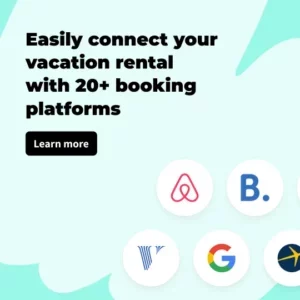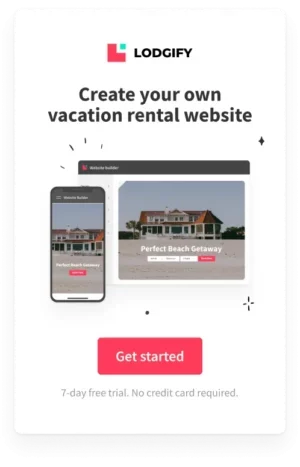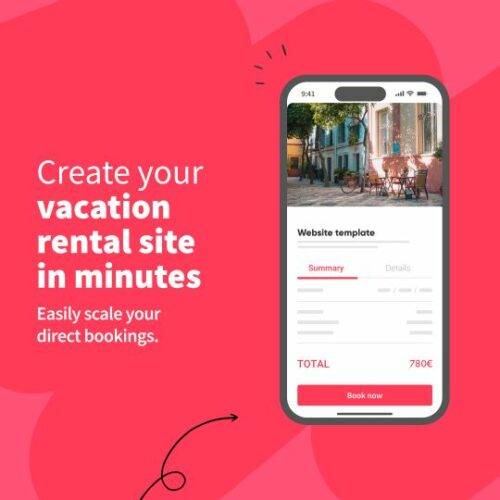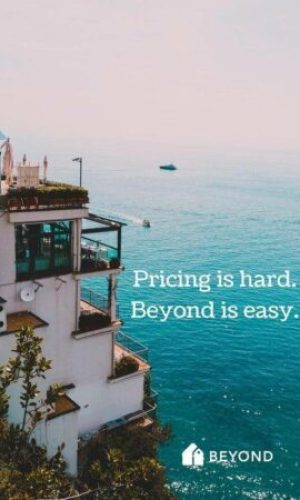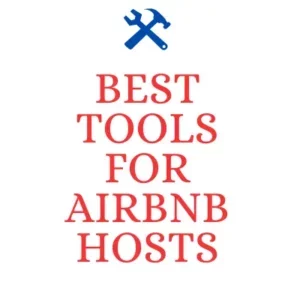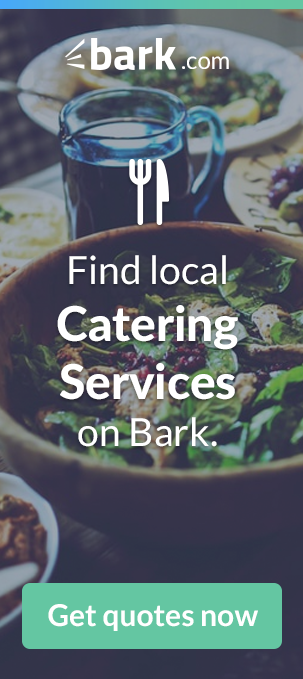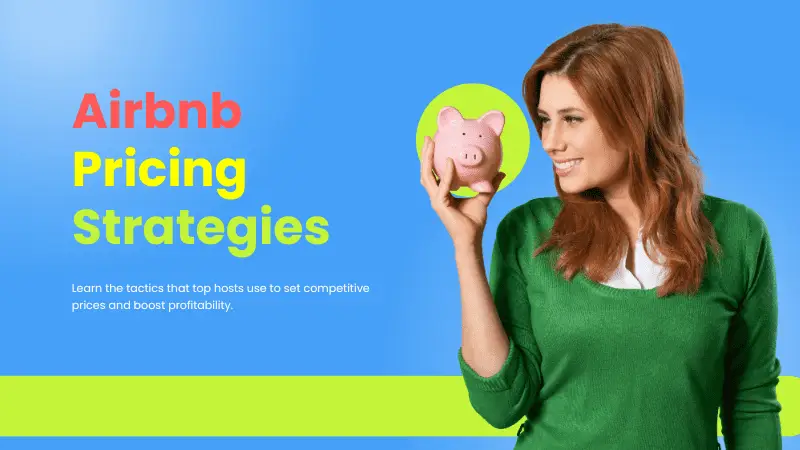
1. Introduction to Airbnb Pricing Strategies
Welcome to our in-depth guide on mastering Airbnb pricing strategies. As an Airbnb host, one of the most critical components of your success is effectively setting your rental price. It’s not just about finding a balance between demand and profit; it’s about understanding the nuances of the market, your guests, and the dynamic nature of short-term rentals. This guide aims to provide you with a comprehensive understanding of various pricing strategies, including dynamic pricing, and best practices to maximize your earnings and ensure a steady stream of satisfied guests.
Pricing your Airbnb effectively requires insight into competitive rates, guest preferences, seasonal trends, and the unique qualities of your listing. By the end of this guide, you’ll be equipped with the knowledge to make informed decisions, adjust prices dynamically, and implement strategies that lead to better occupancy rates and increased revenue. We’ll cover everything from the basics of setting your initial price to advanced techniques like leveraging Airbnb’s smart pricing tool and understanding the best practices for long-term profitability.
For hosts looking to get started with the basics of setting prices or seeking to refine their strategies, Airbnb offers a range of resources, including a comprehensive pricing guide and insights into market trends. These resources are designed to help you navigate the complexities of Airbnb pricing and optimize your listing for maximum success.
Stay tuned as we delve into each strategy, helping you unlock the full potential of your Airbnb and enjoy a more profitable hosting experience.
2. Understanding the Fundamentals of Airbnb Pricing
Mastering the art of pricing your Airbnb starts with a solid understanding of the fundamentals. Knowing what factors influence your rate and how to position your listing in the market is crucial for setting competitive and profitable prices. Here are the key aspects to consider:
-
Key Factors Influencing Pricing Decisions:
- Location: Your Airbnb’s location significantly affects pricing. Proximity to popular tourist attractions, business districts, or scenic views can allow for higher rates.
- Property Type and Amenities: The type of property you’re offering (e.g., entire home, private room) and the amenities provided play a critical role in determining your price. Unique or luxury amenities can justify a higher rate.
- Size and Capacity: Generally, the larger your property and the more guests it can accommodate, the higher you can set your price.
- Seasonality: Understand how demand changes throughout the year in your location. Higher prices can be set during peak tourist seasons, while lower rates might attract guests during off-peak times.
-
Importance of Understanding Your Target Market:
- Knowing your target audience helps tailor your pricing strategy to the guests most likely to book your listing. For example, if you’re targeting budget travelers, your pricing will differ from those targeting luxury seekers.
- Understanding guest behavior, preferences, and booking patterns in your area can guide when to adjust rates and by how much.
-
Seasonality and Its Impact on Pricing:
- Be aware of local events, holidays, and seasons that affect traveler behavior. Prices can be adjusted to reflect the higher demand during special events or peak tourist seasons.
- Conversely, offering attractive rates during slower periods can help maintain steady bookings year-round.
Developing a pricing strategy that reflects these fundamentals will put you on the path to maximizing your earnings. Regularly revisiting and adjusting your strategy based on these factors is key to staying competitive and profitable.
For more detailed guidance on setting your price, consider exploring Airbnb’s own resources, such as the Help Center’s pricing tips or enrolling in Airbnb-hosted webinars focused on pricing strategies.
3. Conducting a Competitive Market Analysis
To set a competitive and profitable price for your Airbnb, it’s essential to understand the landscape you’re operating in. Conducting a competitive market analysis helps you gauge where your listing stands compared to others and informs your pricing strategy. Here’s how to approach this analysis effectively:
-
How to Research and Analyze Competitor Pricing in Your Area:
- Identify Competitors: Look for listings similar to yours in terms of size, location, and quality. Note their pricing, occupancy rates, and any seasonal variations.
- Use Airbnb Tools: Airbnb provides tools and insights that can help you understand average prices and occupancy rates in your area. Make use of these to benchmark your pricing.
-
Utilizing Tools and Data to Understand Market Rates:
- Airbnb Insights: Access insights and data provided by Airbnb about trends and prices in your locality. This can include average nightly rates, demand fluctuations, and more.
- Third-Party Tools: Consider using third-party tools that specialize in Airbnb market analysis. These can provide deeper insights into pricing trends, competitor performance, and demand forecasting.
-
Strategies for Setting Your Price Competitively While Ensuring Profitability:
- Value-Based Pricing: Set your price based on the unique value your property offers. Consider factors like unique amenities, design, or experiences that might justify a higher price.
- Dynamic Adjustments: Be prepared to adjust your prices based on occupancy trends, last-minute availability, or changes in local demand to stay competitive and maximize earnings.
By conducting a thorough competitive market analysis and understanding the broader market context, you can strategically price your Airbnb to attract guests and ensure your business’s profitability.
For additional resources on conducting market analysis and understanding pricing in the Airbnb context, consider exploring the Airbnb Resource Center or attending local host meetups to share insights and strategies.
4. Dynamic Pricing and Its Benefits
Dynamic pricing is a strategy that adjusts the price of your Airbnb listing based on real-time market demand, seasonality, and other factors. Implementing dynamic pricing can significantly increase your occupancy rates and revenue by ensuring your prices are always competitive and appropriate for current market conditions. Here’s how to understand and make the most of dynamic pricing:
-
Understanding Dynamic Pricing:
- What is Dynamic Pricing?: Dynamic pricing involves varying your rate to match demand, time of year, day of the week, and other market signals. This approach helps maximize earnings during high-demand periods and maintain occupancy during slower times.
- Benefits: The primary benefit of dynamic pricing is increased revenue and occupancy. By adjusting prices, you can attract more guests during low-demand periods and capitalize on high-demand times.
-
Implementing Dynamic Pricing for Flexibility and Profit:
- Dynamic Pricing Tools: Several tools are available to help Airbnb hosts implement dynamic pricing. These tools analyze vast amounts of data to recommend optimal pricing for your listing. Popular options include Beyond Pricing, Wheelhouse, and Airbnb’s own Smart Pricing feature.
- Setting Parameters: When using dynamic pricing tools, you’ll set parameters such as your minimum and maximum price, and the tool will adjust within those limits based on its algorithms. Ensure these parameters reflect your hosting goals and costs.
-
Monitoring and Adjusting Your Dynamic Pricing Strategy:
- Regular Review: Even with automated tools, regularly review your pricing to ensure it aligns with your expectations and market changes. Be ready to adjust your strategy based on performance and guest feedback.
- Understanding Market Signals: Stay informed about local events, seasonal trends, and other factors that can influence demand in your area. Use this knowledge to anticipate changes and adjust your pricing strategy accordingly.
Dynamic pricing is a powerful strategy that, when used correctly, can significantly boost your Airbnb’s profitability and competitiveness. It allows for flexibility and responsiveness to market conditions, ensuring you’re always offering the right price at the right time.
For guidance on dynamic pricing and selecting the right tool for your needs, explore the Airbnb Help Center or consult reviews and recommendations from other experienced hosts.
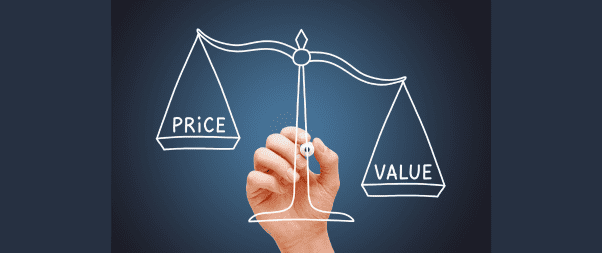
5. Seasonal and Event-Based Pricing Adjustments
Seasonality and local events significantly influence the demand for Airbnb accommodations. By adjusting your pricing according to these factors, you can optimize your revenue and maintain a competitive edge. Here’s how to effectively implement seasonal and event-based pricing adjustments:
Adjusting Prices According to Seasonal Trends:
- Understanding Seasonality: Recognize the high and low seasons in your area. Prices should be higher during peak tourist times and potentially lower during off-peak periods to encourage bookings.
- Planning Ahead: Anticipate upcoming seasonal changes and adjust your prices well in advance. This ensures that your listing is competitively priced when guests start looking for accommodations for their seasonal trips.
Capitalizing on Local Events and Demand Spikes:
- Identifying Key Events: Be aware of major events, conferences, festivals, or holidays in your area that can increase demand for accommodations. These could include sports events, cultural festivals, or large conventions.
- Event-Based Pricing: Set higher rates during these high-demand periods to reflect the increased value of staying at your property. Make sure to adjust your prices early enough to capture the surge in bookings.
Tips for Anticipating Demand Spikes and Maximizing Earnings During Peak Times:
- Stay Informed: Keep an eye on local news, event calendars, and tourism boards to stay updated on upcoming events and potential demand spikes.
- Flexible Strategy: Be ready to adapt your pricing strategy as needed. If an unexpected event or trend increases demand in your area, respond quickly by adjusting your rates.
By implementing thoughtful seasonal and event-based pricing adjustments, you can ensure that your Airbnb is priced optimally throughout the year. This proactive approach helps you maximize earnings during high-demand periods and maintain steady bookings during slower times.
For more insights into adjusting your pricing based on seasonality and events, consider resources like tourism industry reports, local event calendars, and Airbnb’s seasonal pricing tips.
6. Leveraging Airbnb’s Smart Pricing Tool
Airbnb’s Smart Pricing tool is an automated feature designed to help hosts set competitive prices based on changing market conditions, demand, and other factors. Utilizing this tool can simplify your pricing strategy and help ensure your listing is attractively priced to potential guests. Here’s how to use Airbnb’s Smart Pricing tool effectively:
Overview of Airbnb’s Smart Pricing Feature:
- What is Smart Pricing?: Smart Pricing automatically adjusts your listing’s price within a range you set, based on factors like demand for similar listings, seasonality, and local events. It aims to optimize your occupancy and earnings.
- Benefits and Considerations: While Smart Pricing can save time and effort in pricing management, it’s important to consider that it may not always align perfectly with your knowledge of local events or specific market trends. Hosts should regularly review and adjust their minimum and maximum price settings.
Using Smart Pricing Effectively:
- Setting Parameters: Determine your minimum and maximum price limits based on your costs, desired earnings, and understanding of the market. This ensures that Smart Pricing adjusts rates within a range you’re comfortable with.
- Monitoring Performance: Keep an eye on how Smart Pricing affects your bookings and occupancy rates. If you’re not achieving your desired results, reconsider your settings or combine Smart Pricing with manual adjustments.
Pros and Cons of Relying on Automated Pricing Tools:
- Pros: Saves time, adapts to market conditions, potentially increases occupancy.
- Cons: May not fully account for unique aspects of your listing or personal hosting goals, requires oversight to ensure alignment with your pricing strategy.
To maximize the benefits of Smart Pricing, it’s crucial to stay involved in the pricing process, understand how the tool works, and continuously refine your settings based on performance and market insights. Combining Smart Pricing with your own market knowledge and hosting preferences can lead to a more effective and profitable pricing strategy.
For more information on how to set up and manage Smart Pricing for your Airbnb listing, visit Airbnb’s guide to Smart Pricing.
7. Pricing for Longer Stays: Discounts and Incentives
Attracting long-term bookings can provide stability and reduce the workload associated with frequent turnovers. Offering competitive pricing for longer stays is a strategy that can appeal to guests looking for extended accommodations while ensuring your Airbnb remains occupied. Here’s how to approach pricing for long-term stays:
Benefits of Attracting Long-Term Bookings:
- Steady Income: Longer bookings provide a consistent revenue stream over an extended period.
- Reduced Turnover: Fewer turnovers mean less cleaning and preparation work, saving you time and potentially reducing costs.
Setting Appropriate Discounts for Weekly or Monthly Stays:
- Consider Your Costs: When setting discounts for longer stays, consider your costs such as utilities, cleaning, and maintenance. Ensure that the discounted rate still covers these expenses and meets your income goals.
- Market Comparison: Look at how other listings in your area price long-term stays. Your discounts should be competitive but also reflect the value and uniqueness of your property.
Balancing Attractiveness with Profitability:
- Incremental Discounts: Consider offering incremental discounts, where the longer the stay, the greater the discount. This can incentivize even longer bookings while allowing you to adjust the rate to balance occupancy and profitability.
- Special Offers: For periods of low demand or last-minute availability, consider creating special offers for longer stays to quickly fill your calendar.
By thoughtfully setting your pricing for longer stays, you can attract guests looking for extended accommodations while maintaining a profitable and efficient operation. Long-term guests often lead to reduced management effort and a more predictable income, making them an attractive segment to target.
For insights into setting discounts and managing long-term bookings, visit Airbnb’s long-term hosting page which provides guidelines and considerations for hosts.
8. Applying Psychological Pricing Techniques
Psychological pricing is a strategy that involves setting prices in a way that appeals to a customer’s emotional response rather than rational thought. By understanding and applying these techniques, you can make your Airbnb listing more attractive and potentially increase bookings. Here are some psychological pricing tactics to consider:
Understanding Psychological Pricing:
- Charm Pricing: This involves ending prices with an odd number, such as 9 or 99. For example, setting a rate at $99 instead of $100 can make the price seem significantly lower in the eyes of guests.
- Perceived Value: Enhance the perceived value of your listing by highlighting unique amenities or experiences that justify the price. This helps guests feel they are getting more for their money.
Implementing Psychological Pricing in Your Airbnb Listing:
- Price Anchoring: Present your standard price alongside discounted rates (such as for longer stays) to make the discounts appear more significant.
- Rounded vs. Precise Pricing: Use precise pricing for regular rates to convey a sense of value and rounded pricing for luxury or unique listings to emphasize quality and simplicity.
Examples of How Small Adjustments Can Lead to Increased Interest and Bookings:
- Small Decreases for Off-Peak Times: Slightly lower your prices during off-peak times to attract budget-conscious travelers.
- Incremental Increases for Premium Dates: Gradually increase prices for high-demand dates to maximize earnings while remaining attractive compared to competitors.
By incorporating psychological pricing techniques into your Airbnb strategy, you can subtly influence guests’ perception of value and pricing, leading to more bookings and potentially higher revenue. Remember, the key is subtlety and aligning these strategies with the overall quality and positioning of your listing.
For more insights into pricing psychology and how it can be used in hospitality and short-term rentals, consider reading up on marketing and pricing strategy resources or attending workshops focused on pricing psychology.

9. Regular Review and Adjustment of Prices
To maintain a competitive edge and maximize earnings from your Airbnb listing, it’s essential to regularly review and adjust your prices based on various factors, including market changes, guest feedback, and your performance metrics. Here’s how to keep your pricing strategy responsive and optimized:
The Importance of Regularly Updating and Adjusting Prices:
- Market Fluctuations: The short-term rental market can change rapidly. Regularly reviewing your prices ensures they reflect current demand, seasonality, and any local events affecting occupancy rates.
- Performance Review: Analyze your booking data regularly. Look at occupancy rates, average nightly rates, and guest feedback to understand what’s working and what might need adjustment.
Setting Up a Schedule for Price Optimization:
- Routine Check-ins: Set a regular schedule to review your pricing strategy, such as at the beginning of each month or season. This helps you stay proactive and make timely adjustments.
- Alerts and Monitoring Tools: Utilize tools that alert you to significant market changes or opportunities to adjust your pricing. Many dynamic pricing tools offer notifications when it might be beneficial to update your rates.
Staying Responsive to Feedback and Market Insights:
- Guest Feedback: Pay close attention to what guests say about the value for money of your listing. If you notice a trend in comments about pricing, consider whether an adjustment is needed.
- Local and Global Trends: Stay informed about trends in the travel industry and your local area that might influence demand and pricing. This includes understanding how global events, economic conditions, or changes in traveler behavior might impact your optimal pricing.
Regularly reviewing and adjusting your pricing is an ongoing process that can significantly impact your success as an Airbnb host. By staying informed, responsive, and strategic about your pricing, you can ensure that your listing remains attractive to guests and profitable for you.
For additional guidance on monitoring and adjusting prices, consider exploring Airbnb’s own pricing tips or engaging with host communities where members share strategies and insights.
10. Avoiding Common Pricing Mistakes
Effective pricing is a critical aspect of successful Airbnb hosting, but it’s also an area where many hosts can go wrong. Being aware of common pricing mistakes and understanding how to avoid them can help you optimize your occupancy and revenue. Here are some typical pitfalls to watch out for and strategies to stay on the right track:
Identifying Common Pitfalls in Airbnb Pricing:
- Underpricing or Overpricing: Setting prices too low can leave money on the table and attract guests who may not value your property, while setting them too high can lead to decreased occupancy. Finding the right balance is key.
- Ignoring Market Changes: Failing to adjust prices in response to market fluctuations, seasonality, or special events can result in missed opportunities or uncompetitive rates.
Learning from Case Studies and Experiences of Successful Airbnb Hosts:
- Case Studies: Look for case studies of hosts who have successfully optimized their pricing strategies. Learn from their experiences, what worked, what didn’t, and how they adjusted their approach over time.
- Host Forums and Communities: Engage with other hosts through forums and communities to discuss pricing strategies and common mistakes. Learning from the collective experience of the community can provide valuable insights.
Adapting to Avoid Costly Errors:
- Regular Reviews: Make it a habit to regularly review your pricing strategy and the results it’s yielding. Be prepared to make changes based on what you’re learning.
- Utilizing Technology: Consider using dynamic pricing tools and analytics software to help avoid common mistakes and keep your pricing strategy aligned with market conditions.
By being mindful of these common pricing mistakes and adopting a proactive, informed approach to your pricing strategy, you can enhance your Airbnb’s appeal, satisfy your guests, and maximize your income.
For more insights into common pricing mistakes and how to avoid them, consider resources such as Airbnb hosting blogs, webinars focused on pricing strategies, or even online courses in hospitality management.
11. Conclusion: Embracing Best Practices for Airbnb Pricing Strategy
To maximize your earnings and ensure guest satisfaction, it’s crucial to embrace best practices in your Airbnb pricing strategy. This involves being informed, flexible, and guest-focused. As we wrap up our guide on “Smart Hosting: Mastering Airbnb Pricing Strategies for Maximum Earnings,” let’s recap some of the key best practices you should adopt:
Summarizing the Best Practices in Pricing Strategy:
- Understand Your Market: Keep a pulse on local demand, seasonality, and events that can affect pricing. Regularly conduct competitive analyses to understand where your listing stands.
- Be Data-Driven: Utilize data and insights from your own experiences, market trends, and pricing tools to inform your strategy. Make decisions based on what the numbers are telling you about your performance and market dynamics.
- Offer Value: Ensure that your pricing reflects the value you provide. Guests are willing to pay for unique experiences, superior quality, and additional amenities. Highlight these aspects in your listing and price accordingly.
- Stay Flexible: The market is always changing, and so should your prices. Be ready to adapt your strategy in response to feedback, occupancy rates, and market conditions.
Encouraging a Proactive and Informed Approach to Pricing Adjustments and Strategy Refinement:
- Continuous Learning: Stay informed about the latest trends in travel and hospitality pricing. Engage with other hosts, attend workshops, and read up on industry insights.
- Regular Adjustments: Make pricing a regular part of your hosting routine. Schedule time to review and adjust your rates, especially in anticipation of high or low seasons, and after any significant changes in your listing or local area.
By embracing these best practices, you can create a dynamic and effective pricing strategy that helps you achieve your hosting goals. Remember, successful pricing is not a set-it-and-forget-it endeavor; it requires ongoing attention, adaptation, and a commitment to excellence.
For continued support and resources, visit Airbnb’s Resource Center or engage with other hosts in forums and local meetups to share experiences and learn from each other.
You may also like to read;


